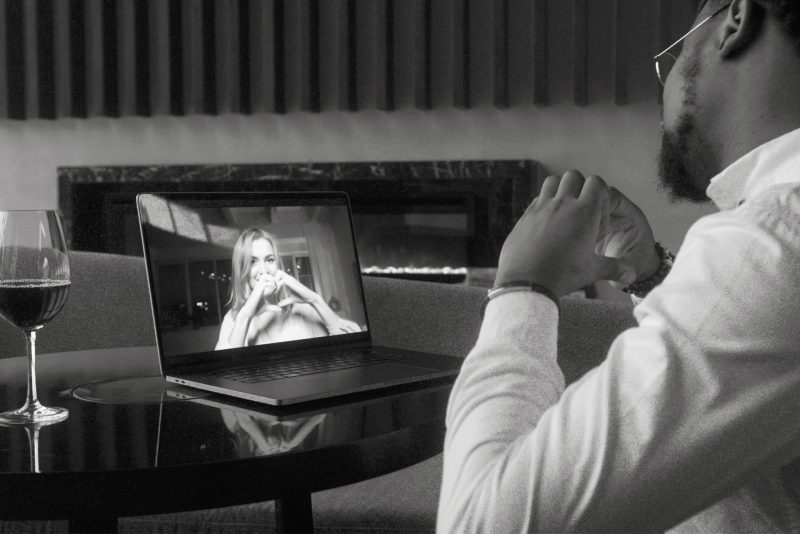The internet has profoundly influenced how romantic relationships in the digital age are formed and maintained. The increasing popularity of online communication, social media platforms, and dating apps has reshaped the dating landscape, with both positive and negative effects.
This article will delve into the rise of online dating, explore its impact on relationships, and discuss the advantages and disadvantages it brings. Furthermore, it will examine the changing norms and expectations in dating culture as well as the role of online communication tools in fostering intimacy and connection.
You will also explore the future of romantic relationships in a digital world, considering emerging technological trends, ethical concerns, and the importance of balancing digital connections with offline experiences.
Online dating’s transformative impact
This section examines online dating’s impact on relationships. It discusses the popularity and advantages of online dating, like expanding social networks and access to a larger partner pool, as well as its drawbacks, such as the time and effort required and the risk of misrepresentation.
Additionally, it also explores changing norms and emphasizes authenticity and a positive mindset in the digital age.
Evolving dating norms and expectations
The rise of dating apps and online platforms has fundamentally transformed how people meet and fall in love in the 21st century. The idea of finding a soulmate and actively searching for a partner has become more general.
Online dating has transformed how people connect, allowing them to meet potential partners from home and expand their social circles. This private and convenient approach has revolutionized the dating process. Being authentic, making the first move, and maintaining a positive mindset can lead to better outcomes in relationships in the digital age.
Online dating platforms’ growing popularity
The internet has revolutionized dating by providing more options for potential partners and breaking down barriers. A survey by Statista showed that in 2022, there were over 366 million users of online dating services, and by 2027, it is projected to reach 440 million people.
The market for internet dating is thriving, generating 2.86 billion U.S. dollars in 2022, and it shows no signs of slowing down. Dating sites provide a broader reach and cater to specific preferences.
Communication is faster, and geographical and cultural limitations are less relevant. Traditional monogamy is no longer believed, and people can research others before meeting.
Online dating pros and cons
There are advantages and disadvantages associated with online dating. It is crucial to be aware of them to make an informed decision of whether to utilize internet sites to cultivate new relationships.
Here are the following advantages:
- Expanding social network and gaining new friends;
- Feeling a sense of safety and control in the online dating process;
- Access to a larger pool of potential partners compared to offline dating; and
- Greater chances of finding partners who meet specific criteria such as type, orientation, lifestyle, or in isolated areas.
However, along with the advantages, online dating also has drawbacks. Below are the following disadvantages of online dating.
- Time and effort required in the online dating process;
- Potential lack of success in finding compatible partners;
- Dealing with unwanted sexual messages or advances;
- Risk of encountering individuals who misrepresent themselves; and
- Overwhelming choices of potential partners lead to confusion.
By understanding the pros and cons of online dating, you can decide whether to engage in this digital journey of building new relationships. Remember to approach online dating with an open mind, set clear boundaries, and put your safety and well-being first.
Communication in the digital age
This section examines communication in the digital age and its impact on relationships. It covers the role of online tools, both positive and negative, and explores the effects on intimacy and connection. Also, it discusses challenges and opportunities for effective communication in the digital realm.
Social media shapes relationship dynamics
In today’s digital era, couples can communicate faster, one of which is by using social media. Social media has the potential to impact relationships in both positive and negative ways.
Read more: Does Social Media Make You Happy or Depressed?
On one hand, the internet provides opportunities to stay connected with distant loved ones and improve communication with partners, family, and healthcare providers.
On the other hand, it can interfere face-to-face interactions, giving rise to feelings of jealousy, conflict, and negative comparisons. Additionally, it can affect the level of attention and intimacy experienced in relationships.
Digital communication’s impact on intimacy
Online intimacy is influenced by how people interact and connect on the internet. The use of technology, such as virtual reality, can create a more realistic experience, but it’s important to remember the absence of physical presence. However, online and offline intimacy are not entirely different; they simply occur in different ways.
Nowadays, intimate connections involve utilizing different communication methods, both online and offline, such as messaging, social media, and virtual environments. Each individual’s experience of online intimacy is unique, depending on their specific needs and the platforms they choose to engage with.
Online communication: challenges and opportunities
The increasing prevalence of digital communication in lives, including relationships, brings both benefits and challenges. A survey by Pew Research Center in October 2019 revealed that many Americans experience technology-related difficulties in their romantic partnerships. A few of the difficulties included:
- Messages are misunderstood due to the absence of nonverbal cues and tone of voice.
- Excessive dependence on digital communication results in reduced in-person interaction.
- The expectation to reply immediately leads to potential misunderstandings and communication breakdowns.
Nevertheless, digital communication also offers advantages for effective relationship communication. One of the digital communication benefits is it enables couples to maintain connection despite geographical separation and time limitations. Additionally, it facilitates easier and more open expression of emotions and feelings within couples.
Digital future of romantic relationships
This section explores the future of romantic relationships in a digital world, focusing on emerging technology trends, ethical considerations, and the balance between digital and offline experiences.
Tech trends shaping future relationships
According to an online dating statistics, Match.com was introduced in 1995 as a popular online dating service accessible to the public. In just 10 years, it emerged as the second-most popular industry for paid online content, generating an impressive annual revenue of $1.9 billion.
Increased use of online dating is associated with higher smartphone addiction scores, according to studies on internet disorders. However, extended use alone does not fully explain problematic online dating behavior, as its causes and maintenance involve various factors such as biological, psychological, and social aspects.
Future ethical considerations and concerns
Online dating has completely transformed the way couples meet nowadays. It has opened up a world of possibilities, allowing diverse relationships to blossom and reshaping the traditional dating scene.
While many people find online dating to be a positive experience, there are also concerns about inequality and the potential for economic filtering. Opinions on its impact on relationships differ, with some individuals highlighting the negatives and others embracing the positive changes it brings.
Maintaining digital and offline balance
When considering online intimacy’s impact on well-being, it’s important to compare it to offline intimacy. Self-disclosure and social support are key aspects of intimacy that positively affect health outcomes. Moreover, physical contact fosters intimacy and has therapeutic effects.
Read more: Is Physical Appearance the Key to Becoming Attractive?
In conclusion
The rise of online dating and the increasing use of the internet have significantly changed the dynamics of romantic relationships. Online communication, social media platforms, and dating apps have reshaped how couples meet and connect.
While there are advantages, such as expanded social networks and access to a larger pool of potential partners, there are also disadvantages and challenges to navigate. Changing norms and expectations in dating culture emphasize authenticity and a positive mindset. Communication in the digital age plays a crucial role, with online tools impacting intimacy and connection.
Looking ahead, romantic relationships in the digital age hold both opportunities and ethical considerations. It is essential for an individual to balance digital connections and offline experiences to cultivate a fulfilling and healthy relationship.
If you would like to see more resources on romantic relationships such as this article, check out the Personal Science Labs. The lab uses the research of the Institute for Life Management Science to produce courses, certifications, podcasts, videos, and other tools. Visit the Personal Science Labs today.
Photo by Artem Podrez on Pexels


